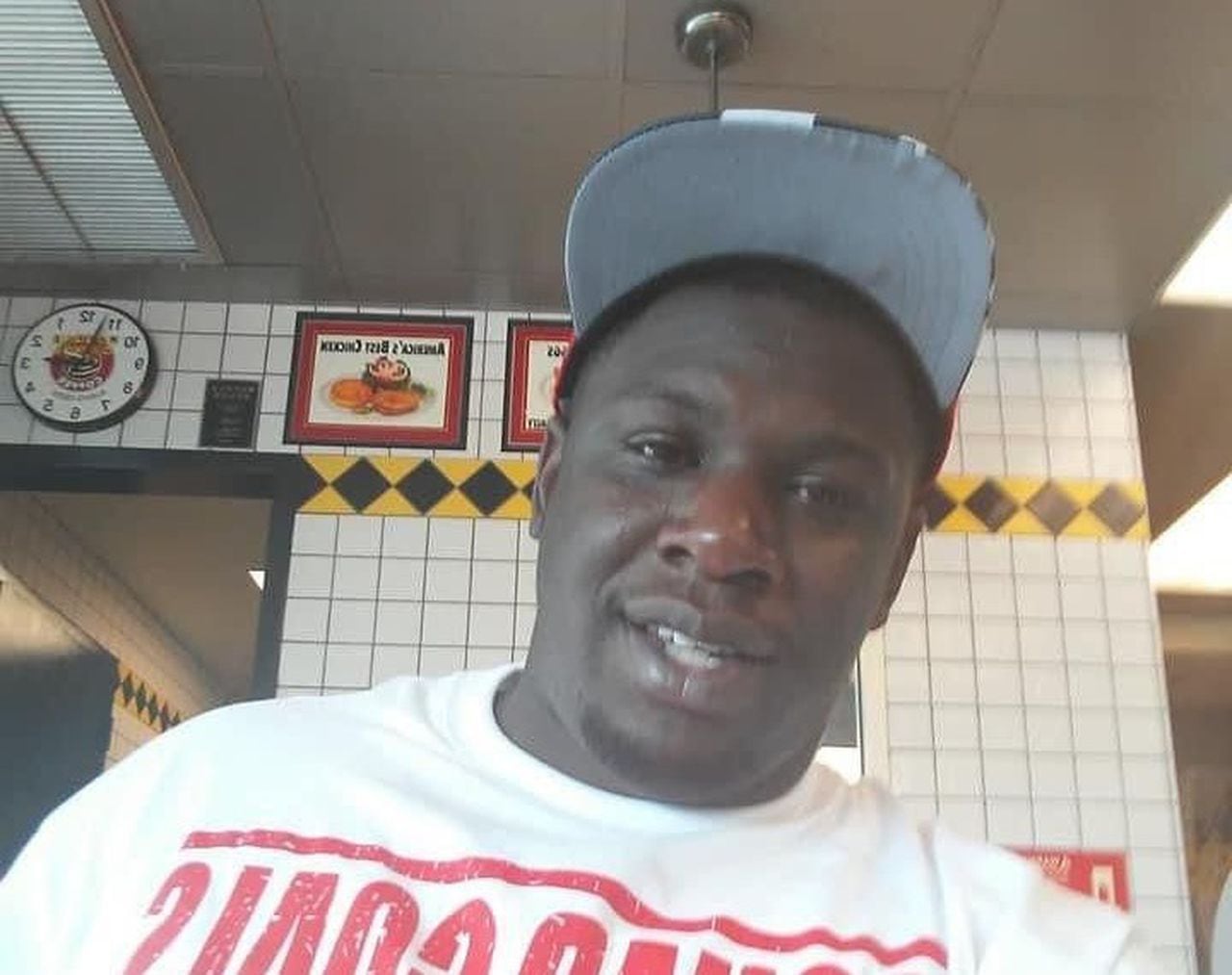Mobile public safety director to review all use of force body cam footage
All use-of-force reports involving Mobile police officers will be submitted and body camera footage turned over to the city’s new executive director of public safety.
The new policy was announced Tuesday amid elevated tensions in Mobile over recent deadly and violent encounters involving Mobile police officers and Black residents.
“I am asking every use of force report to come to my office, and I will review the body cameras that I can,” said Rob Lasky, a Special Agent in Charge of the Mobile Division of the FBI who took over as the public safety director overseeing the city’s police and fire departments in October.
“I’ll review (the body cam footage) and if there is something that should be acted on or not, it will be the supervisor who is held accountable,” Lasky told the council.
Passionate remarks
Jawan Dallas (Contributed)
His remarks occurred during a council meeting dominated by impassioned remarks from speakers and some council members less than one week after attorneys representing the family of Jawan Dallas recounted chilling details over what they viewed on police-worn bodycam footage taken shortly before Dallas’ death.
The footage, the attorneys claim, showed Dallas repeatedly tased while officers were investigating a burglary report in Theodore on July 2. Dallas, who attorneys said pleaded for his life, died after his encounter with the two Mobile police officers.
The attorneys for the Dallas family likened his death to George Floyd, a Black man who was killed by a white Minneapolis police officer in 2020, that ignited protests across the country over police brutality and racial injustice. Derek Chauvin, the police officer convicted of killing Floyd, is serving a 21-year prison sentence.
Mobile city officials and District Attorney Keith Blackwood have said that the cause of Dallas’ death was due to health factors and drug use. The officers who encountered Dallas have since been allowed to return to their patrols.
Dallas is the fourth Black man to have a fatal encounter with Mobile police this year. The most recent involved a 16-year-old teenage boy who was shot and killed following a police raid on Nov. 13, which prompted Mobile Mayor Sandy Stimpson to call for a halt to most pre-dawn raids. The teenage boy was not the intended target of the raid.
“We’re calling on the ministers in Mobile, this needs to be one of our top priorities to see our citizens of our community, all citizens, feel safe and protected,” said the Rev. Tonny Algood, pastor of the United Methodist Inner City Mission. “People don’t feel that way now.”
The attorneys representing the Dallas family are also calling on the Mobile city officials and police to release the bodycam video footage to the public. That appears unlikely to happen, and Alabama state law does not include any provisions for police to release bodycam video footage.
Mobile council members are discussing whether to adopt an ordinance regulating bodycam footage, but it cannot be written to require police to release footage.
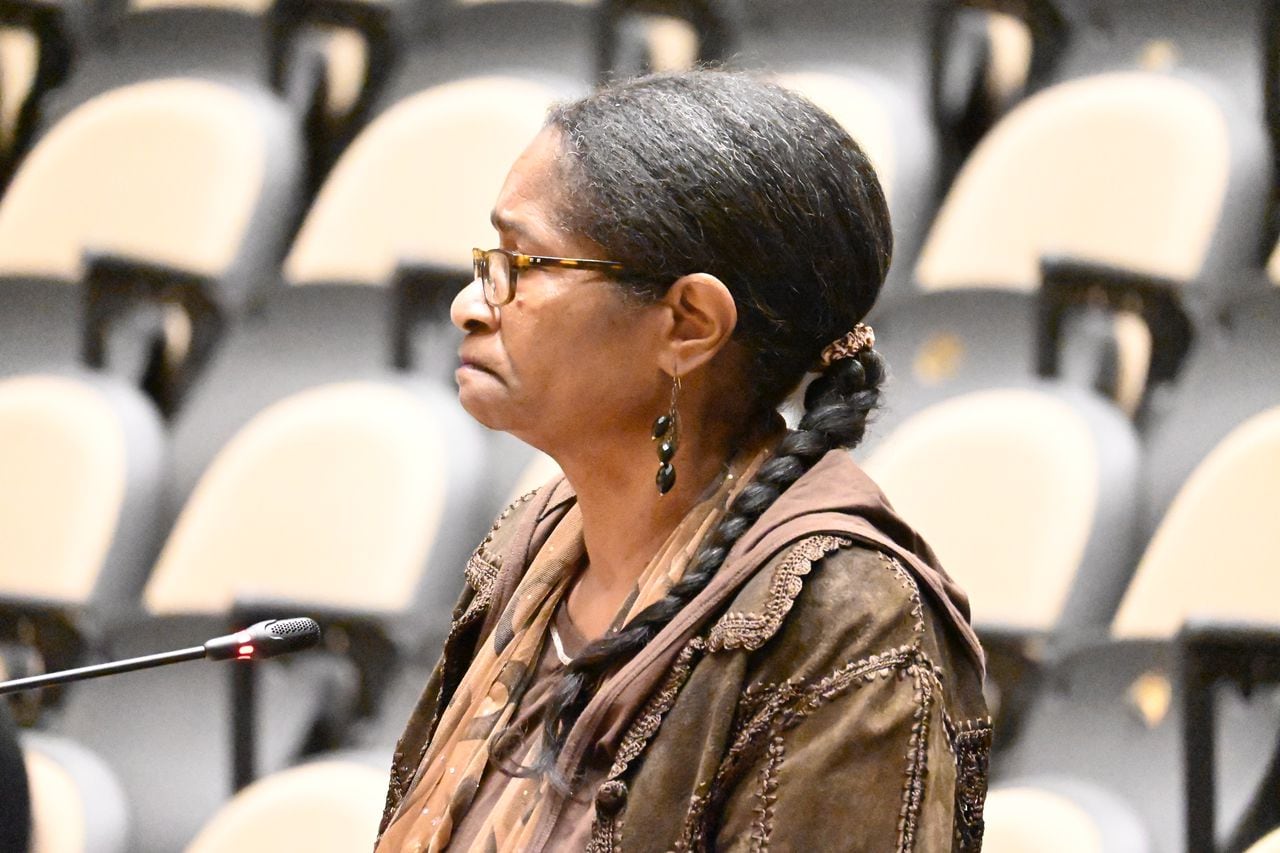
Carrie Williams of Mobile speaks during the Mobile City Council meeting on Tuesday, Nov. 28, 2023, at Government Plaza in downtown Mobile, Ala. The meeting featured impassioned remarks from residents over the future of policing in Mobile less than one week after attorneys for the Jawan Dallas family spoke about what they saw from the video of a police-worn body camera. The family’s attorney has likened Dallas’ death to George Floyd in 2020 in Minneapolis. Dallas died that day after his encounter with police, and family members and supporters have since called for the release of police-worn body camera footage.John Sharp/[email protected]
“My question is, where do we go from here?” said Carrie Williams of Mobile. “We cannot bring Jawan back, and the other gentlemen (who died while encountering police) back. There does nee to be some policy changes.”
She added, “My heart goes out to the police officers, but people are dying. Something needs to be done.”
Council reacts
Some council members offered up their own viewpoints, led by Councilman Cory Penn who called for a permanent halt to predawn police raids.
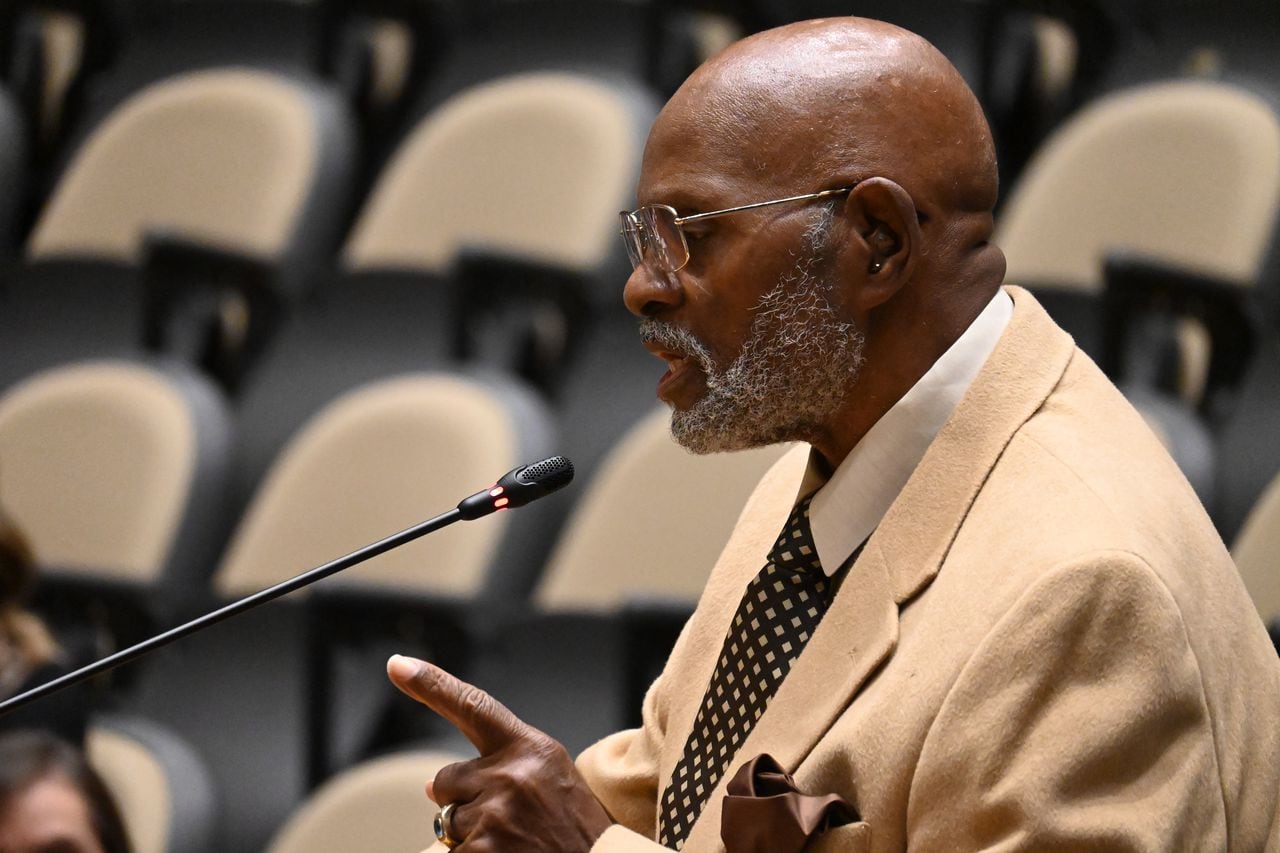
Former Mobile City Councilman Clinton Johnson Sr. speaks during the Mobile City Council meeting on Tuesday, Nov. 28, 2023, at Government Plaza in downtown Mobile, Ala. The meeting featured impassioned remarks from residents over the future of policing in Mobile less than one week after attorneys for the Jawan Dallas family spoke about what they saw from the video of a police-worn body camera. The family’s attorney has likened Dallas’ death to George Floyd in 2020 in Minneapolis. Dallas died that day after his encounter with police, and family members and supporters have since called for the release of police-worn body camera footage.John Sharp/[email protected]
His comments came after former Councilman Clinton Johnson Sr. spoke about how someone would reasonably be protective of their house and their family if someone – including a police officer – was attempting to enter his house at 5 a.m.
“If you burst in with boldness and loudness, I’m going to grab my gun too,” said Johnson. “Not because you are a police, but because I don’t know who you are.”
Penn, echoing Councilman William Carroll’s remarks from two weeks ago, chastised the police department for Nov. 13 predawn raid over a marijuana-related concern.
“That’s ridiculous,” Penn said. “There should be in a policy in place (to prevent predawn raids related to a marijuana-related offense). It doesn’t need to be a temporary thing. It needs to be banned, period. That’s what I’m requesting.”
Penn said his concerns should not suggest he is verbally attacking the Mobile Police Department.
“It’s attacking the situation,” he said. “I have family members who are police officers. I have friends (who are police officers). I’m not saying they are bad. But we are talking about a situation. This needs to be changed.”
Aside from Dallas and the teenager killed on Nov. 13, the others who died this year following an encounter with police include:
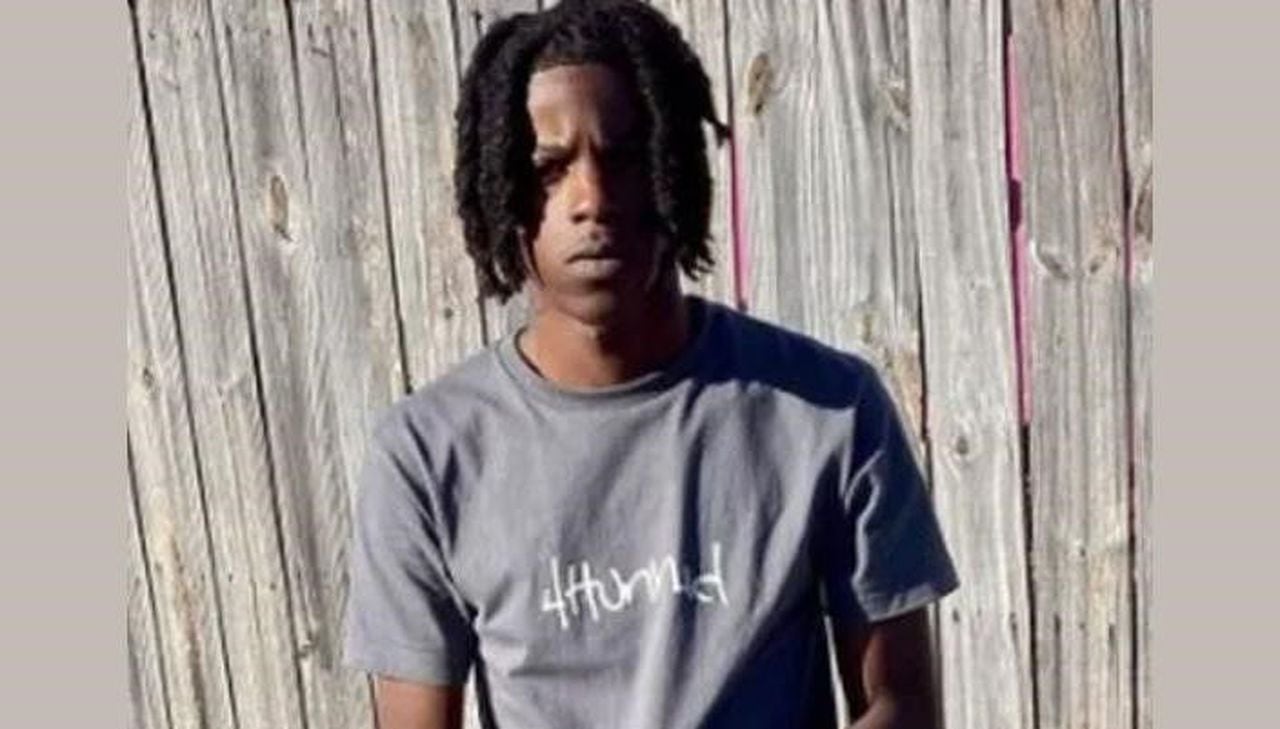
Kordell Jones
- Kordell Jones, 25, as shot by authorities on March 7 as he ran out of a house naked and carrying an AR-style gun while police were raiding a home in search of his brother.
- Christopher Jones, 24, was shot and killed October 2 on Glenwood Street during an altercation with police while he was on the roof of a residence. Officers ordered Jones to come down from the roof, and he complied, only to produce a shotgun and point it at police. Jones was shot and killed.
Committee, meeting
Some of those changes are expected to surface during discussions with members of a newly formed committee of citizens and community activists who will be charged with providing feedback on police policies and procedures. Johnson said he will be one of its members.
But it’s unclear on when the committee will officially form, or if they will meet in public.
The fallout from the news conference on Nov. 22, will continue into this week. An “emergency community meeting” is scheduled for 6 p.m. on Thursday at All Saints Episcopal Church in Mobile. The meeting will be hosted by Rev. William J. Barber II, president of Repairers of the Breach, and will be attended by Atlanta-based civil rights attorney Harry Daniels, who is representing the Dallas family and who got to see the bodycam footage last week.
“What is being reported to me by the lawyers and the family is worse than tragic,” Barber said in a statement. “It is a form of police terror and deep unjust abuse of power. Dallas, in essence, was begging for his life. Now we see why they did not want the video seen by the public.”
Some City Council members said they are hopeful the city administration will provide a response to the Nov. 22 news conference. Council members, like the general public, have not been allowed to see the bodycam video footage.
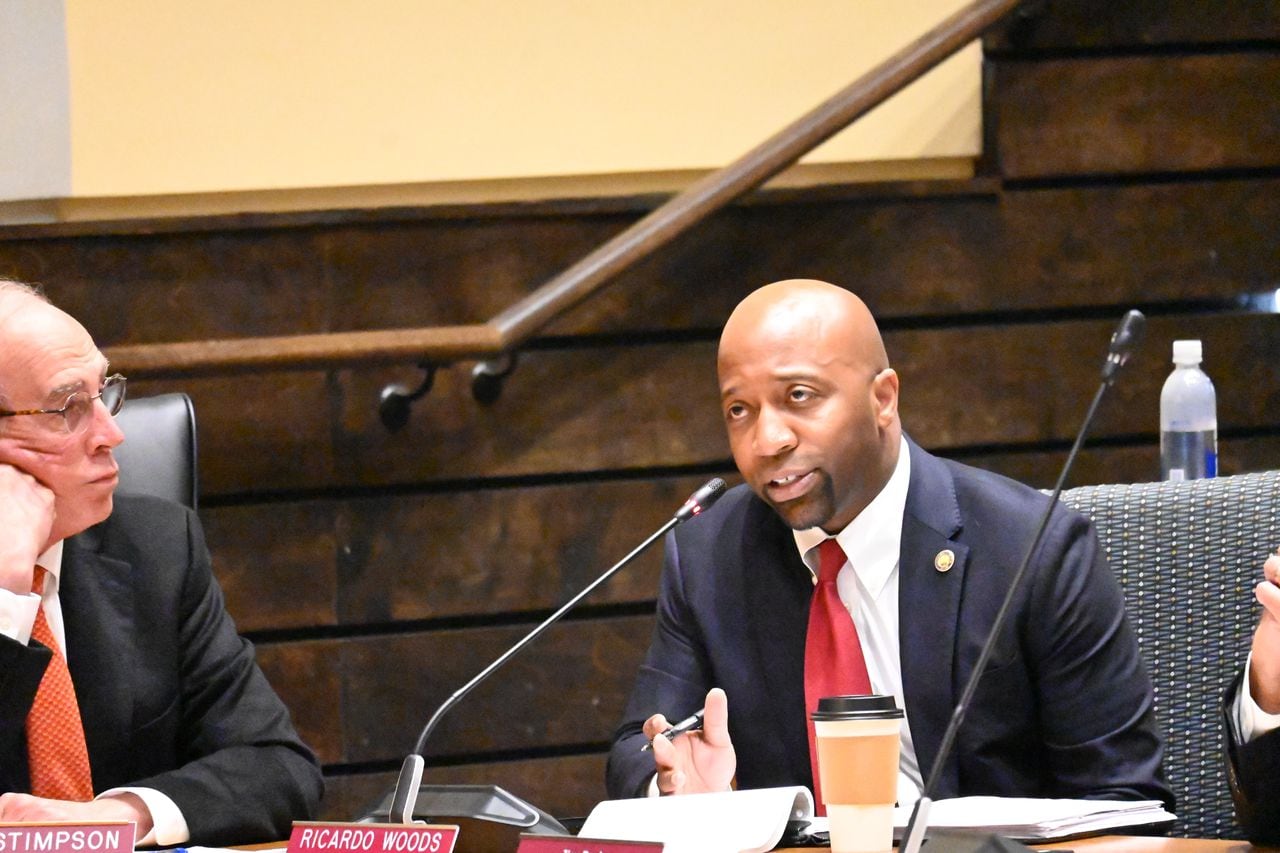
Mobile City Attorney Ricardo Woods speaks while Mayor Sandy Stimpson listens on during the Mobile City Council meeting on Tuesday, Nov. 28, 2023, at Government Plaza in Mobile, Ala.John Sharp/[email protected]
City Attorney Ricardo Woods said he was willing to “lay this out in detail” for the council at a future date.
Timothy Hollis, a former candidate for the Mobile City Council, blasted council members for not taking a tougher stance against Mobile Mayor Sandy Stimpson’s administration, and the police department.
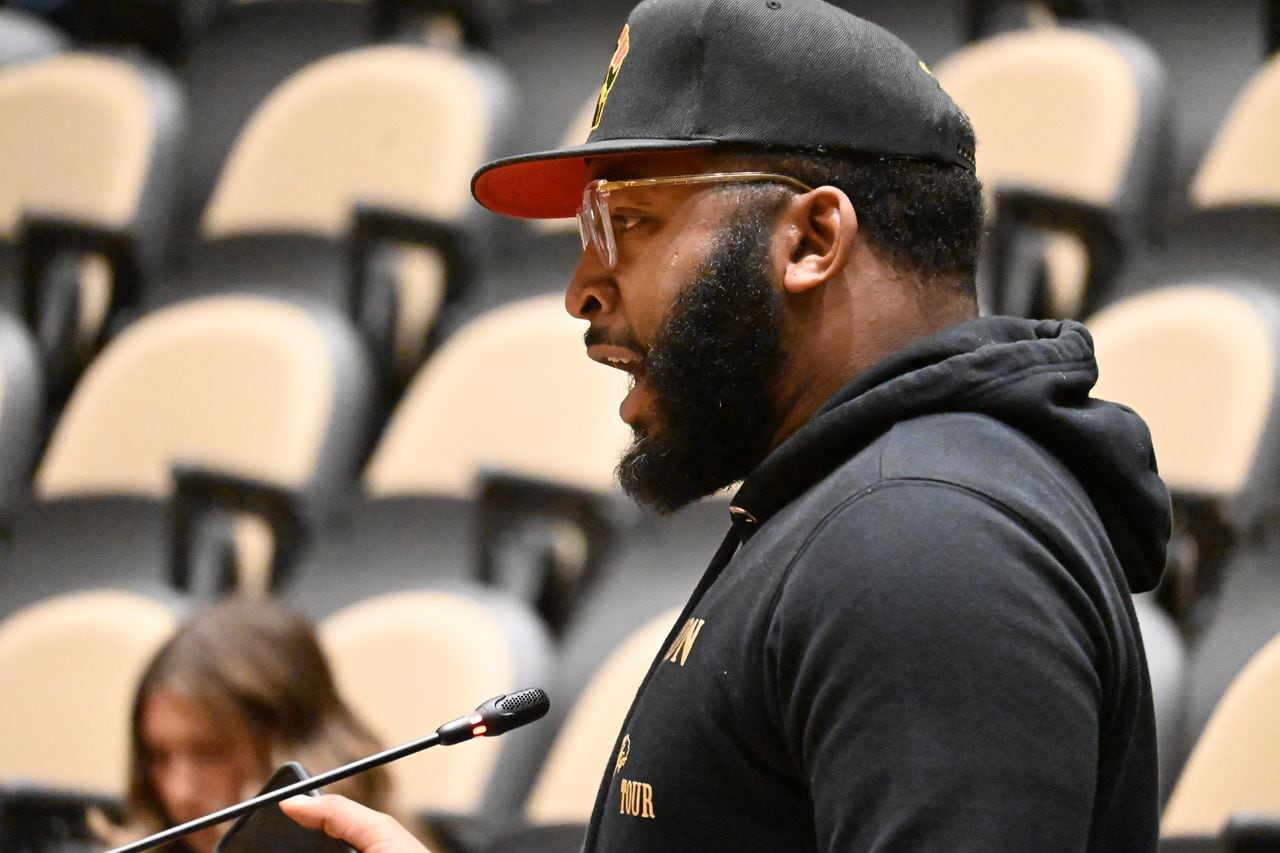
Timothy Hollis of Mobile speaks during the Mobile City Council meeting on Tuesday, Nov. 28, 2023, at Government Plaza in downtown Mobile, Ala. The meeting featured impassioned remarks from residents over the future of policing in Mobile less than one week after attorneys for the Jawan Dallas family spoke about what they saw from the video of a police-worn body camera. The family’s attorney has likened Dallas’ death to George Floyd in 2020 in Minneapolis. Dallas died that day after his encounter with police, and family members and supporters have since called for the release of police-worn body camera footage.John Sharp/[email protected]
“We are not saying ‘all cops are bad,’” said Hollis. “That’s not what we are saying at all. But how many times does this have to happen and how many times do they expect us to come down here and speak from the heart and gather community members together just so we can hear fluff from the city attorney and hear about this … good cop/bad cop narrative?”
